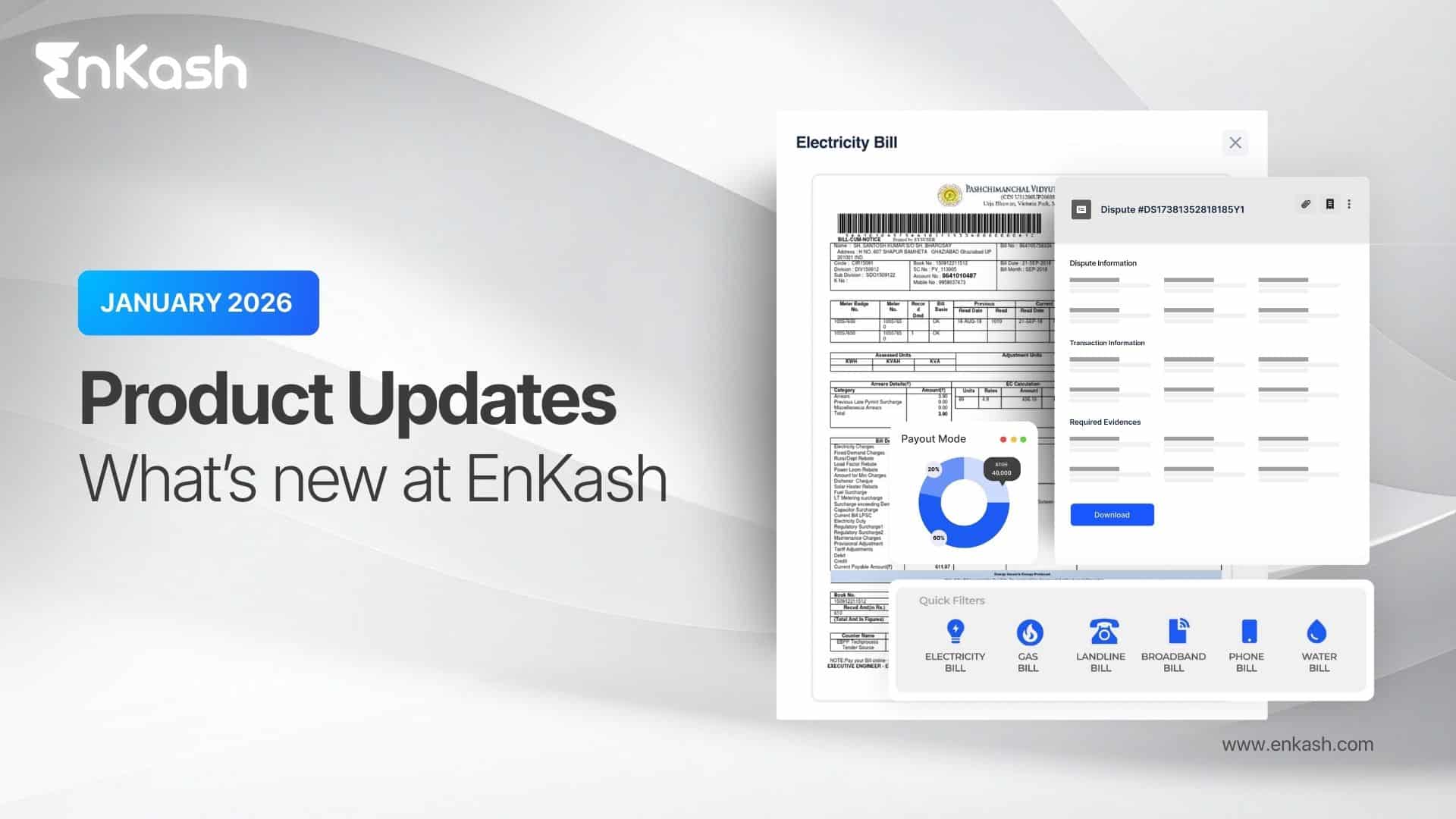Financial stability is a key factor for the success and longevity of any organization. According to a survey, 82% of businesses fail due to cash flow issues which is why one of the most crucial aspects of financial management is cash flow management. Good cash flow management equals a thriving business. But having good cash flow strategies is not such an easy task, one needs to know their business needs completely and always look for ways to optimize expenses and invest where it can be beneficial for the business.
Today in this article let’s learn more about what exactly is cash flow management, what are its benefits, components, strategies, How to improve cash flow, and how to overcome challenges for a secure financial future.
What is cash flow management?
Cash flow management refers to the process of monitoring, analyzing, and optimizing the inflow and outflow of cash within a business. It involves tracking the movement of cash in and out of the company to ensure there is enough liquidity to cover operational expenses, meet financial obligations, and fund future investments.
Well, understanding ‘what is cash flow management’ is very important for your business to grow! Keep reading for a better understanding about its benefits!
Types of Cash Flow
Cash flow can be broken down into three main categories:
Operating Cash Flow (OCF): The money generated from a business’s core operation activities like selling products or services is called Operative Cash Flow. This is the income that a company makes from its regular operations. If the OCF is positive, it means the business is bringing in enough cash to cover its ongoing expenses, like paying employees and suppliers. This is a good sign of financial health.
Investing Cash Flow (ICF): When a company decides to invest more in the growth of the business like buying new equipment/resources or a building, or even acquiring another company, these purchases require cash outflow (spending money). Similarly, selling off company assets like property or old equipment brings in cash (inflow). The ICF tracks these investment-related activities of a business.
Financing Cash Flow (FCF): When a company gets money from external sources, like issuing new stocks or bonds (borrowing money) it is called Financing Cash Flow. It also includes using cash to pay back debt or repurchase shares. The FCF shows how the company is managing its financing strategies.
The benefits of cash flow management
- Improved financial stability: Effective cash flow management software offers a clear picture of a company’s financial health, enabling proactive decision-making. It ensures that the business has enough funds to cover day-to-day expenses, debt payments, and emergencies, reducing the risk of financial instability
- Enhanced planning and budgeting: By understanding what is cash flow management, businesses can manage budgets, set realistic financial goals, and plan for growth. It allows for informed investment decisions and helps identify areas where expenses can be optimized, or revenue can be increased
- Timely debt repayment: Cash flow management software helps ensure sufficient cash is available to meet debt obligations on time, thereby maintaining a good credit rating. Prompt debt repayment improves the company’s reputation and increases its ability to secure favourable loan terms in the future
So, while you have got a fair idea of ‘what is cash flow management’ and its benefits, learn about its components too!
Components of cash flow management
- Cash inflows: This component includes revenue from sales, loans, investments, and any other sources of cash entering the business
- Cash outflows: These comprise expenses such as employee salaries, rent, utilities, inventory costs, loan repayments, and taxes. Understanding and managing these cash outflows is crucial for maintaining positive cash flow
- Accounts receivable and payable: Managing accounts receivable ensures timely collection of payments from customers, while efficiently managing accounts payable process ensures on-time payment to suppliers, avoiding any disruptions in the supply chain
What is cash flow – a very common question asked has been of interest to everyone! But making sure that you understand the strategies for the same is very important.
Effective cash flow strategies
- Cash flow forecasting: Developing accurate cash flow projections based on historical data and future expectations allows businesses to anticipate potential cash shortages or surpluses. This enables proactive measures to be taken, such as adjusting expenses, seeking additional funding, or negotiating better terms with suppliers
- Streamlining accounts receivable: Implementing effective invoicing and collection processes, offering incentives for early payment, and promptly addressing overdue accounts can accelerate cash in flows
- Optimizing accounts payable: Negotiating favorable payment terms with suppliers, taking advantage of early payment discounts, and regularly reviewing expenses can help manage cash outflows more efficiently
- Maintaining adequate reserves: Setting aside cash reserves for emergencies or unexpected events is crucial to mitigate the impact of unforeseen circumstances, maintaining business continuity
While you have made a strong understanding of “What is cash flow management?”, It is time to learn about ways you can overcome the challenges that come hand in hand.
Learn How To Take Control Of Your Business Cash Flow
Overcoming challenges and planning for the future
- Seasonal fluctuations: Businesses experiencing seasonal variations in revenue need to carefully manage their cash flow during lean periods by planning ahead and building reserves during peak seasons
- Market volatility: Economic uncertainties and market fluctuations can significantly impact cash flow. Diversifying revenue streams, maintaining strong customer relationships, and having contingency plans can help navigate such challenges
- Long-term growth: As businesses grow, managing cash flow becomes more complex. Monitoring cash flow regularly, investing in scalable infrastructure, and seeking expert advice can aid in sustaining growth without compromising financial stability
How EnKash Can Help You Optimize Your Business Cash Flow?
EnKash offers a variety of solutions to help businesses improve their cash flow management:
- Cash Flow Analytics: The EnKash dashboard enables you to receive in-depth real time analytics with custom reporting tools so that you can stay informed 24*7 about your business spends and collections. Optimize workflows if needed and allocate accurate budget according to specific project/employee needs
- Spend Control: Optimize business spends by allocating specific budgets. You can issue corporate cards to employees for business purchases and set spend limits on these cards on the basis of MCCs and allocate weekly/monthly budget. If any employee tries to spend more than the allocated budget, then a instant policy deviation alert will be sent to the reporting manager
- Approval Workflows: Create custom maker-checker approval matrix for instant automatic approvals according to the hierarchy of the specific departments. Here all the invoices get automatically routed to designated checker, once maker uploads the invoice and sends it for approval
- Bill Payments and Automation: EnKash allows you to make timely payments to suppliers and avoid late fees. This helps you maintain good relationships with vendors and potentially negotiate better payment terms
- Bulk Collect: EnKash offers features like bulk collect that enable you to get paid for your invoices sooner. This provides immediate access to cash, which can help you bridge cash flow gaps and avoid delays in payments to suppliers or employees
- Payment Reconciliation: EnKash can help you automate the process of reconciliation, saving time and reducing the risk of errors. This ensures accurate financial records and helps you identify any discrepancies in your cash flow
Conclusion
“What is cash flow” has been a consistent question among businessmen today. Cash flow is a fundamental aspect of financial management that directly impacts a business’s survival and growth. Understanding and effectively managing cash flow enables businesses to maintain financial stability, make informed decisions, and plan for the future. You can use cash flow management software with us to track cash inflows and outflows, optimizing accounts receivable and payable, and implement cash flow forecasting, businesses can ensure they have enough liquidity to meet obligations and seize opportunities.
Overcoming seasonal fluctuations and market volatility challenges requires careful planning and diversification. Businesses can achieve a solid financial foundation for long-term success by prioritising cash flow management and implementing sound strategies. While you understand “what is cash flow ?”; you can always get in touch with our experts for fintech-related solutions.
FAQs
What is cash flow management, and why is it essential for businesses?
Cash flow management is monitoring, analyzing, and optimizing the inflow and outflow of cash within a business. It ensures there is enough liquidity to cover expenses, meet financial obligations, and fund investments. This leads to improved financial stability and informed decision-making.
What are the benefits of effective cash flow management?
The benefits of cash flow management include:
- Improved financial stability by proactively managing funds,
- Enhanced planning and budgeting for growth and optimization, and
- Timely debt repayment to maintain a good credit rating.
What are the components of cash flow management?
The components of cash flow include:
- Cash inflows from sales, loans, investments, etc.
- Cash outflows such as salaries, rent, inventory costs, etc.
- Managing accounts receivable and payable for timely bill payments.
What are some strategies for effective cash flow management?
Strategies for effectively managing cash flow includes:
- Cash flow forecasting based on historical data and future expectations,
- Streamlining accounts receivable for faster collection,
- Optimizing accounts payable for efficient cash outflows, and
- Maintaining adequate reserves for emergencies.
How can businesses overcome problems in managing cash flow?
Businesses can overcome challenges in cash flow management by:
- Planning ahead and building reserves during seasonal fluctuations,
- Diversifying revenue streams and having contingency plans for market volatility, and
- Monitoring cash flow regularly and seeking expert advice for long-term growth.
How can cash flow management software help businesses?
Cash flow management software allows businesses to track cash inflows and outflows, optimize accounts receivable and payable, and implement cash flow forecasting. It helps ensure sufficient liquidity to meet obligations and make informed financial decisions.










